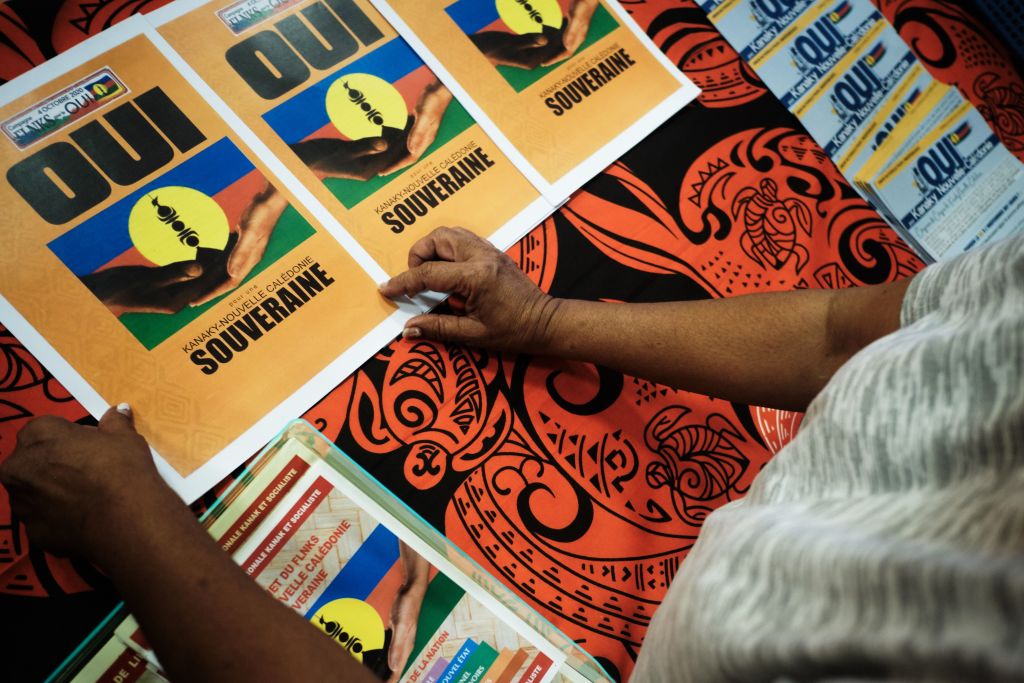
New Caledonia will hold its second referendum on 4 October as part of the final self-determination process agreed to in the
1998 Noumea Accord. That agreement provides for up to three polls, two years apart, as long as the answer is ‘no’ to independence in each. Even after three ‘no’ votes, pro-independence and pro-France leaders must discuss with Paris the future shape of governance in New Caledonia. So, change is certainly afoot.
This complex, some would say generous, voting process arose from the fact that the 1998 Accord itself postponed by 20 years a vote that was due to take place that year. All parties accepted that the risk of a return to the violence that preceded the accord was too great to proceed then.
In the
2018 vote, 56.7% of eligible voters favoured staying with France and 43.3% voted for independence. The communes voting for independence coincided
exactly with indigenous Kanak areas.
Will the result be any different this time?
There certainly are notable differences surrounding this vote. This year there will be 6,000 more voters than in 2018, as 18-year-olds become eligible. Both sides will be targeting them, along with the 33,000 voters who didn’t take part last time. The difference between the ‘yes’ and ‘no’ returns then was 18,000 votes.
The polarisation between the two sides has sharpened since the 2018 vote.
Local provincial elections in May 2019 delivered a sobering reduction in numbers for the pro-France side. Independence parties increased their representation from 25 to 26 of the 54 Congress seats, whereas pro-France groups decreased from 29 to 25. A further three seats were won by a new Polynesian islander party which presented as pro-France but has since supported independence groups in Congress votes at times. The non-Kanak islander vote will be an important target for both sides.
A new hardline pro-France coalition,
Les Loyalistes, has been formed, sidelining the more moderate
Calédonie Ensemble.
Its plan is to alter formulas for political representation and financial allocations in its favour.
The extreme independence party,
Parti Travailliste, boycotted the vote last time. This time it will participate, joining forces with a new small party, and adding to the efforts of the mainstream
Front de Libération Nationale Kanak et Socialiste (FLNKS) to secure more independence votes. For this vote, the FLNKS has
updated the independence plan it issued several years ago.
This time, independence leaders have been directly critical of the French government, accusing it of partiality in allowing the pro-France side to use the French flag for campaigning and not agreeing to independence leaders’ wishes to postpone the vote further due to the Covid-19 pandemic. They
have also criticised France’s statutorily required statement for voters on the consequences of voting ‘yes’ or ‘no’, saying it doesn’t reflect the bilateral discussions held earlier this year. They
accused senior French officials of behaving in a colonialist manner in imposing all-of-France measures and by flouting local Covid-19 restrictions. They noted that the French government
recently replaced its most senior ministers who had been well versed in dealing with New Caledonia.
More broadly, independence leaders have become more assertive,
opposing recent efforts to salvage a multibillion-dollar nickel project by replacing Brazilian investors with Australian involvement. Mainstream independence leaders instead advocated local control of the project. (Australian New Century Resources subsequently
withdrew its interest.) Just days before the vote, independence leaders
proposed a resolution in the local congress for local control of broadcast media, tertiary education and certain administrative matters in the provinces. The Noumea Accord provides for these transfers, but pro-France parties have so far not agreed.
Pro-France leaders have once again played the China card, alleging
that New Caledonia would become a Chinese colony if the independence side won.
France is again aiming at organising a vote as impartially as possible, to prevent the result being contested domestically or internationally. Still, after the first vote,
the French president expressed pride in New Caledonia’s decision to remain French. The outcome last time was overseen by observers from the United Nations and the Pacific Islands Forum and 120 international journalists. This year, the effect of Covid-19 travel restrictions means that only the UN will be there in a similar way; its team is currently in quarantine awaiting the vote. The Pacific Islands Forum has designated local diplomats (consuls from Australia, New Zealand and Vanuatu) as its observers. Visiting island ministers, who last time travelled widely, will not be there this time. There will be few, if any, international journalists.
The combination of heightened polarisation, independence groups’ grievances, and weakened external observer scrutiny suggests that the outcome of this vote may be contested.
While any prediction about the result would be brave, even minor shifts from the 2018 outcome will be seen as highly significant by each side, further accentuating differences. That could inhibit early collaboration around a discussion table about the post-Accord future. It is to be hoped that once again we will see a peaceful vote across the Coral Sea as our close neighbour goes to the polls in this unique and remarkable process.
 Print This Post
Print This Post